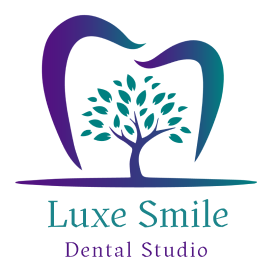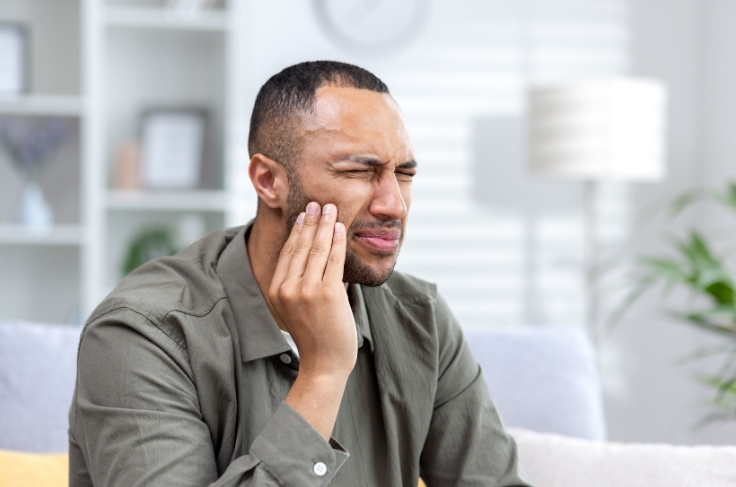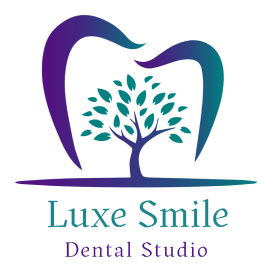Why Do We Have a Toothache If Our Teeth Are Not Clean?


Many of us tend to overlook our oral health. From skipping brushing twice a day to forgetting to use an antimicrobial mouthwash, the list goes on. Such flaws in one’s oral care routine can cause a serious accumulation of plaque. And over time, this accumulated gunk can cause a toothache.
It’s easy to blame a cavity or tooth injury for your tooth pain. But it is poor oral hygiene that is at fault. The thick deposits around teeth and gumline can lead to inflammation, infection, and decay. This results in the painful ache that makes mealtimes the most dreaded.
The only way to get rid of plaque is by following a brushing and flossing routine. It prevents the plaque from turning into tartar, which inflames the gums and erodes tooth enamel.
If you are still unsure of how a toothache occurs from unclean teeth, scroll down for more information on the topic:
How Do Unclean Teeth Trigger Pain?
Since the inception of dental care, dentists have been suggesting that people clean their teeth daily without fail. And the fun fact is, dentistry is one of the oldest medical professions worldwide. Evidence shows researchers have found proof of dental practices during 7000 BCE. So you now know how ancient the concept of clean teeth is. Unclean teeth offer the perfect atmosphere for deadly bacteria to thrive. This is how they can contribute directly to a toothache:
Plaque Buildup and Acid Attack
Accumulated food particles and sugar become the food of bacteria. They digest them and create harmful acid. Over time, this acid thins out the hard outer coating of the tooth or enamel. It makes teeth sensitive and painful.
Gum Inflammation
Gingivitis, or red gums, is a sign of gum disease. Swollen gums pull away from the teeth and expose the roots. The exposed roots cause stabbing or throbbing pain while chewing solid foods or consuming liquids.
Infection Inside the Tooth
You can get a tooth infection if bacteria enter the inner pulp of the tooth. This tends to produce pain that runs deep into the ear or jaw. A root canal, in most cases, must be done to treat an untreated infection.
Link Between Oral Hygiene and Tooth Sensitivity
Sensitivity of the teeth may feel like a dull pain or jabbing when you eat or drink something hot, cold, or sweet. Uncleaned teeth diminish the thickness of enamel. Signs of receding enamel include retracting gums, which expose the sensitive inner layers of teeth. The American Dental Association says this is one of the most frequent complaints of adults with poor mouth care practices. Regular dental cleaning can put a stop to this development by eliminating plaque and tartar and detecting trouble spots before pain sets in.
Why Should You Focus on the Prevention of Toothache?
Teeth pain does not simply disappear on its own. If not treated, the condition will worsen. It can ultimately affect your overall well-being. According to a study conducted by the CDC, if left untreated, oral infections can cause heart disease and diabetes complications. So it’s safe to say everyone must stay on top of home oral care routines and routine dental visits in Phoenix. Consistent oral care is the only tip that will have your back.
Want to dive deeper into the nutritional science behind an old toothbrush? 👉 Discover if using old toothbrushes can actually lead to toothaches!
How to Keep Your Teeth Clean and Pain-Free?
Daily upkeep and regular checkups are needed in order not to develop a toothache from unclean teeth. Here’s how to do it:
- Brushing twice a day with fluoride toothpaste
- Flossing once a day to remove food between teeth
- Avoiding sugary snacks and acidic drinks
- Following a diet rich in vegetables and fruits
- See your dentist every 6 months for a checkup
- Ask about sealants or fluoride treatments for extra protection
Toothaches resulting from poor oral care can be avoided. Daily dental care routines and regular visits to the dentist can help protect your smile and prevent pain. Don’t wait until you are hurting—take control of your oral health now.


